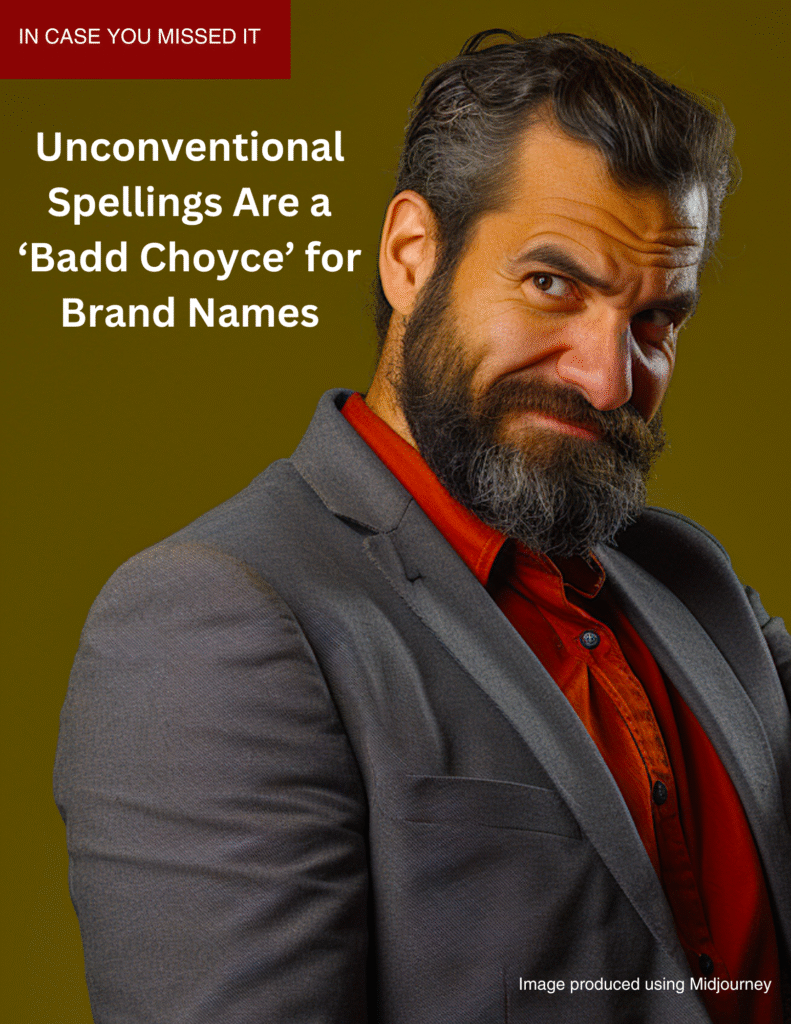
Modifying Real Words Seen as a Marketing Gimmick by Consumers
While marketers seem to love creating new brand names by deliberately misspelling real words, a 2023 study shows that consumers almost never like this tactic.
In a series of studies, researchers found that consumers respond less positively in a variety of ways to new products when their brand names use unconventional spellings of real words, such as “Klear” instead of “Clear.”
“People just don’t like these types of names very much,” said Jesse Walker, co-author of the study and assistant professor of marketing at The Ohio State University’s Fisher College of Business. “Using these unconventional spellings often backfires.”
Findings showed that consumers thought brands with these names were less sincere, according to study co-author John Costello, assistant professor of marketing at the University of Notre Dame and a PhD graduate of Ohio State.
“Consumers see these names as just a persuasion tactic, a marketing gimmick, and that leads them to respond less positively,” Costello said.
The study was published online in the Journal of Marketing.
In one study, the researchers set up tables outside a college football stadium on two afternoons leading up to a home football game. They had assistants pose as brand ambassadors distributing free samples of a new non-alcoholic seltzer.
People coming to the tables were offered a choice of two seltzers. One was always called “Deep.” The other was either called “Clear” or “Klear.”
When presented the choice between Deep or Klear, people chose Klear only 48 percent of the time. But when they were offered “Clear” they chose that 62 percent of the time over “Deep.”
“This was a real product choice where consumers were unaware they were participating in a study—and they clearly preferred the name with the conventional spelling,” Costello said.
Other studies supported this result in a variety of different contexts.
For example, in one online study, consumers selected their preference between two real food or clothing brands. The researchers chose new brands that were unlikely to be widely recognized.
Sometimes one of the choices was a product with the true, unconventional spelling of the brand. One example was a clothing brand called “DSTLD.” But in other cases, the researchers used the conventional spelling of the word used for the brand—in this case, “DISTILLED.”
Results showed that participants were more likely to choose a brand when presented with the conventional spelling than when presented the real, unconventional spelling of the brand.
Another study asked participants why they rated a brand with an unconventionally spelled name lower than one with the proper spelling.
Results showed that participants thought the unconventional spelling was a gimmick or marketing tactic designed to make the brand seem cool or trendy. They also thought it made the brand seem less sincere—less honest, down-to-earth and wholesome.
These findings all involved new brands, explained co-author Rebecca Reczek, professor of marketing at Ohio State. Established brands with unconventionally spelled names—such as Krazy Glue or Krispy Kreme—probably won’t suffer from a backfire effect.
“It may be that using these unconventional spellings was better accepted years ago when it was still more of a novelty,” Reczek said.
“But now consumers just see it as a gimmick. New brands would be better off not going that route.”
The researchers did other studies that found deliberately misspelling words can work in some limited cases, such as when the reason for selecting the name is seen as sincere, or when consumers are seeking a memorable experience—for example, a restaurant or bar. In one study, the researchers found that a bar called “Xtra Chilld Lounge” did appeal to consumers looking for a fun, memorable evening.
But these are the exceptions, Walker said. “There are very few situations in which people actually like brand names with these unconventional spellings of real words.”
“But what is really interesting is that the marketing establishment doesn’t really seem to realize this.”
In a pilot study of 100 marketing managers, the researchers found that most managers still believed that unconventional spelling in brand names was an effective tactic, and there are several recent books that still promote this approach.
“Our work shows there are many more negatives than positives for brands who try to use unconventional spellings for their names,” Costello said.
This article was adapted from information provided by Ohio State.
